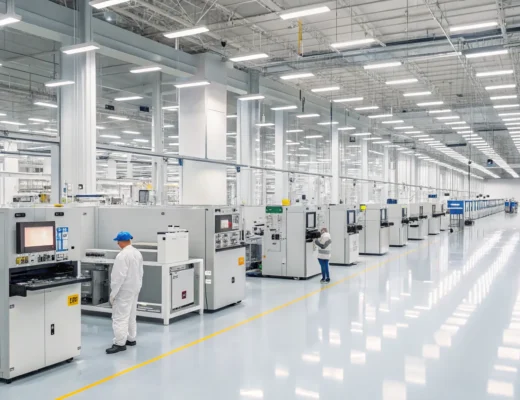Berkshire Hathaway’s stock price has declined following Warren Buffett’s announcement that he will step down as Chief Executive Officer of the conglomerate. The market reaction highlights investor uncertainty about the company’s future leadership and direction.
Buffett, often called the “Oracle of Omaha,” has been the driving force behind Berkshire Hathaway for decades, transforming it from a struggling textile company into one of the world’s largest holding companies with investments across insurance, railroads, utilities, manufacturing, and retail sectors.
Market Response and Investor Concerns
The stock decline reflects immediate investor anxiety about Berkshire’s future without Buffett at the helm. Market analysts note that Buffett’s investment philosophy and business acumen have been central to Berkshire’s success, making his departure a significant event for shareholders.
While the exact percentage of the stock drop was not specified, the movement indicates that, despite years of succession planning, the market still views Buffett’s leadership as irreplaceable. Berkshire Hathaway’s Class A shares, which trade at hundreds of thousands of dollars per share, and the more accessible Class B shares both experienced downward pressure following the news.
Succession Planning at Berkshire
Buffett, who is 93 years old, has been gradually preparing for this transition for years. The company has previously identified potential successors, though the specific timeline and details of the leadership change remain unclear from the announcement.
Greg Abel, currently overseeing Berkshire’s non-insurance operations, has been widely considered the likely successor after Buffett previously indicated that Abel would take over if something happened to him. Charlie Munger, Buffett’s long-time business partner who passed away in late 2023 at age 99, had also been instrumental in Berkshire’s decision-making process.
Investors are watching closely for additional details about:
- The exact timing of Buffett’s departure
- Whether he will remain as Chairman of the Board
- How much influence will he retain over investment decisions
- Any changes to Berkshire’s acquisition strategy under new leadership
Long-term Outlook
Despite the immediate stock reaction, financial analysts point out that Berkshire Hathaway has built substantial institutional strength that extends beyond any single leader. The company holds more than $150 billion in cash reserves and owns dozens of businesses outright.
Todd Combs and Ted Weschler, investment managers who joined Berkshire over a decade ago, have been handling increasingly larger portions of Berkshire’s investment portfolio, preparing for an eventual transition.
The structure and culture Buffett has built at Berkshire is designed to outlast him,” noted one market analyst. “But the market is naturally cautious when facing the departure of perhaps the most successful investor in history.”
Berkshire’s diverse business holdings provide stability that few other companies possess, potentially limiting long-term negative impacts from leadership changes. However, questions remain about whether Buffett’s successor can maintain the same discipline in capital allocation that has defined Berkshire’s approach for decades.
As the transition unfolds, investors will be watching closely for signs that Berkshire can maintain its competitive advantages and investment philosophy in the post-Buffett era. The company’s performance in the coming quarters will be scrutinized for any deviation from its historically conservative approach to risk and value-oriented investment strategy.







